
Beauty sustainability in Malaysia
The plastic paradigm - necessary/evil?
For the majority of European consumers, living sustainably almost always means consuming as little plastic as possible – shopping at zero waste/bulk product stores, for example, or avoiding beauty and food products that are packaged in plastic. In fact, for many people, plastic material has become synonymous with toxic landfills, ocean waste and general environmental destruction.
However, in many regions outside of Europe, plastic is viewed much less negatively, simply because it is an essential and almost unavoidable part of everyday life. The reason for this affects just about every area of life in those regions. At the same time, it is a factor that is usually neglected in the Western-centric global sustainability discourse: the geographical climate.
The challenges of a hot climate...

- South East Asia, for example, is a tropical region with temperatures of 25-35 celsius all year round.
- There is constant high humidity and depending on the specific geographical location of the country, regular monsoon/rainy seasons which further ramp up humidity levels.
In these countries, plastic is the most important packaging material to keep foods, cosmetics and other consumer goods from spoiling. High humidity rapidly degrades paper or cardboard packaging unless the products are kept in an air-conditioned and/or de-humidified environment. This means that frequently, beauty products in cardboard packaging – like face creams or serums – are shrink-wrapped in an additional plastic layer for protection. Other paper-based products like books or stationery are also often sealed in plastic to protect the material.
In a tropical climate, fresh foods and groceries go bad quickly once the chilled/air-conditioned supply chain has been interrupted, however briefly. Dried foods turn damp and mouldy when exposed to high humidity unless packaged in glass, metal or plastic. And plastic, as a cheap and infinitely versatile material, usually wins out. Consequently, plastic is playing an essential role in everyday life in South East Asia, much more so than in most European countries.
The problem of drinking water...

- Another factor that makes a plastic-free lifestyle difficult is a lack of potable tap water, especially when combined with a tropically hot climate in which constant hydration is essential.
- In European countries or the US, tap water is generally safe to drink and any lingering taste can be removed by using a simple water filter.
In most countries within the ASEAN region (the Association of South East Asian Nations includes ten countries: Brunei, Cambodia, Indonesia, Laos, Malaysia, Myanmar, Philippines, Singapore, Thailand and Vietnam), tap water isn’t drinkable without boiling or purifying it first. One of the exceptions is the most highly developed country in South East Asia, Singapore, but even here tap water has a perceptible after-taste.
In the majority of South East Asian countries, consumers therefore rely on the purchase of cheap distilled water/drinking water typically packaged in plastic bottles. Convenience stores and supermarkets in the region sell drinking water in plastic canisters of up to 10 litres. Many middle-and-upper class households have plastic water coolers in their flats/houses which need to be changed out regularly.
And again, plastic is the most convenient packaging material here – glass canisters/bottles, especially in pack sizes beyond one litre, are impractical as the end product would be too heavy to carry and easily breakable. Another reason why plastic products/packaging is ubiquitous in most ASEAN countries.
Grass roots activism and community engagement

- Unsurprisingly, South East Asia is amongst the world’s biggest sources of plastic pollution.
- There are multiple reasons for this: rapid urbanisation, a growing middle class, inadequate waste management infrastructure as well as geographic factors such as extensive coastlines (several ASEAN countries are islands) with rivers leading directly into the sea.
Almost all of the countries in the region lack effective recycling facilities and while some local governments have introduced a fee for plastic bags or tried to encourage the use of alternatives, single-use plastics are still much more widely in use than in the EU.
However, despite (or because of) these circumstances, there is a vibrant grass roots activism scene in a number of ASEAN countries, with non-profits, indie companies and community groups tackling environmental issues such as ocean plastic pollution or recycling/upcycling.
In Malaysia, for example, Yayasan Hijau Malaysia is educating youngsters on the importance of green technology and sustainable living practices as well as encouraging the participating of both community groups and corporate entities in green lifestyle practices. Social enterprise Fuze Ecoteer is focused on community-based nature conservation projects, including marine conservation and rainforest research and wildlife rescue.
Fuze Ecoteer also runs Upcycled by FE. The company organises river and ocean plastic clean-ups with the help of local community groups and NGOs and manufactures bathroom and personal accessories from the collected plastic waste.
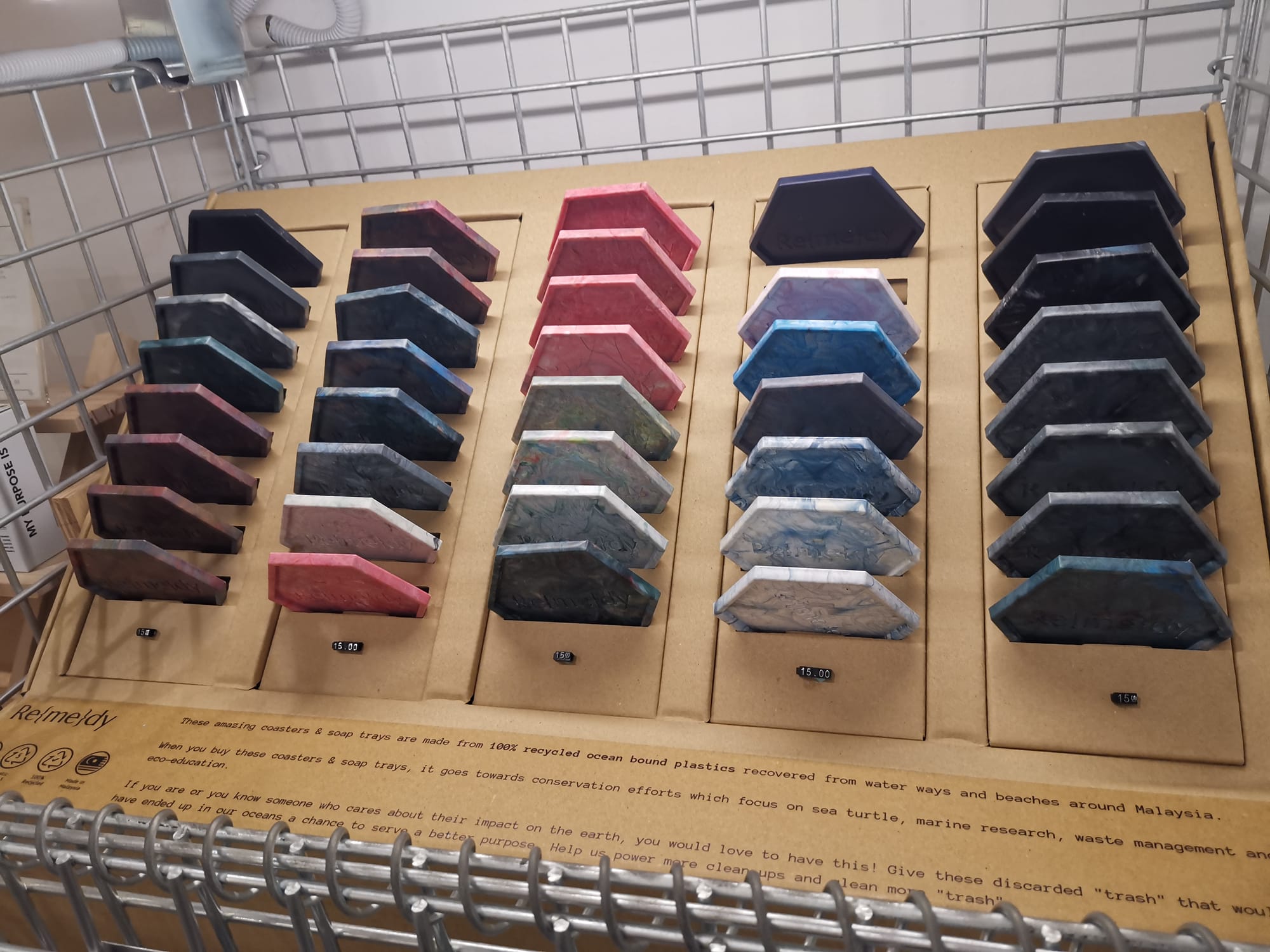
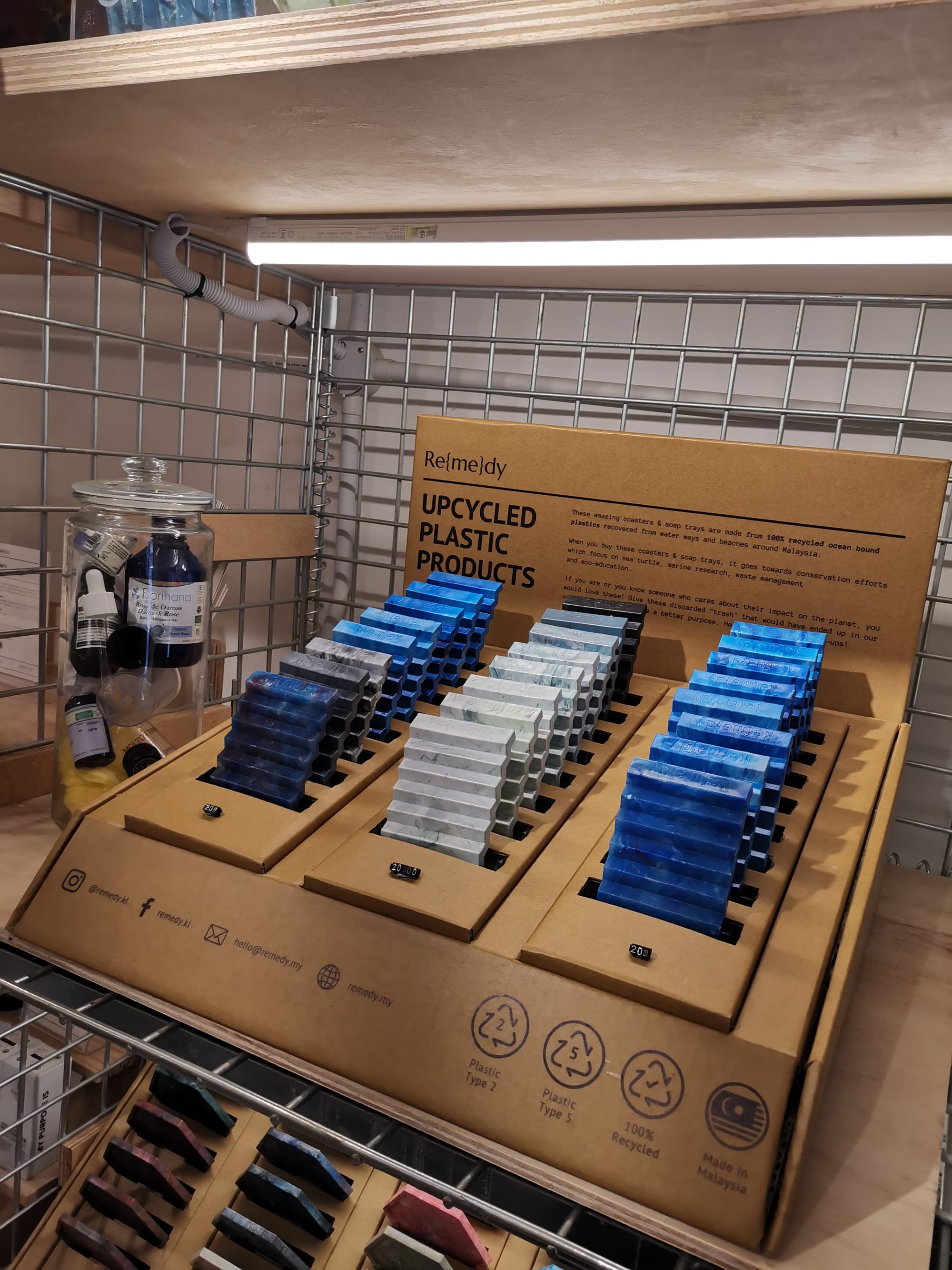
Upcycled soap dishes manufactured by Upcycled by FE in Re{me}dy store / Photo by Annemarie Kruse
Based in Malaysia's capital city Kuala Lumpur, Upcycled by FE is also heavily involved in local public education about recycling, ocean plastic and plastic pollution in general, running workshops and information events for both private individuals and larger companies.
Interview with Re{me}dy KL
Circular Beauty/Bulk Beauty
Jon Lee is the founder of circular beauty store Re{me}dy KL in Kuala Lumpur, Malaysia.
Re{me}dy KL opened its doors in 2021 with a selection of natural cosmetics made in Malaysia, including both Re{me}dy’s own beauty range and other Malaysian indie brands. The store also sells beauty accessories – including some of the products from Upcycled by FE – and a selection of eco-friendly and upcycled fashion, accessories and bags manufactured in Malaysia and its neighbouring countries.
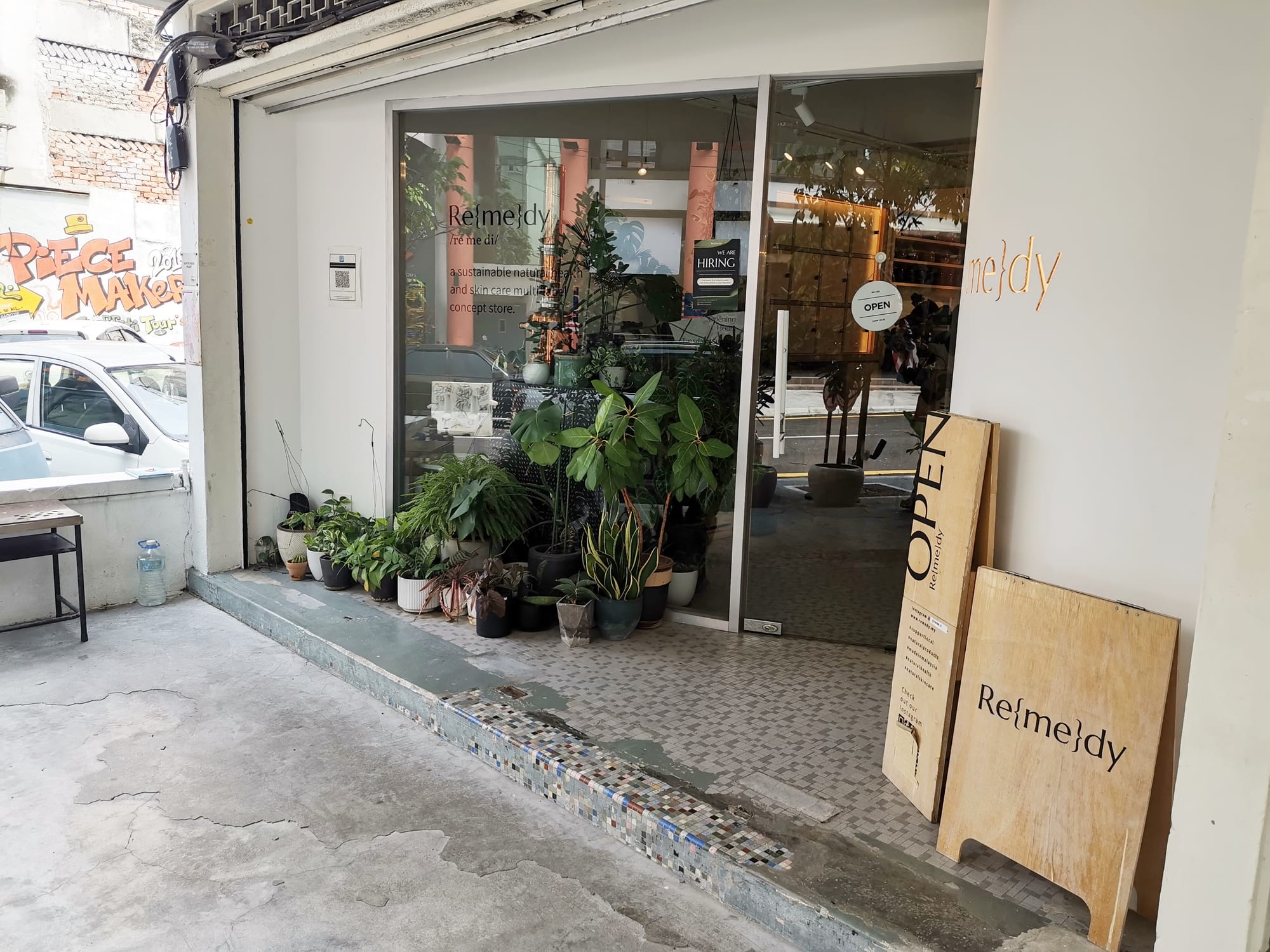
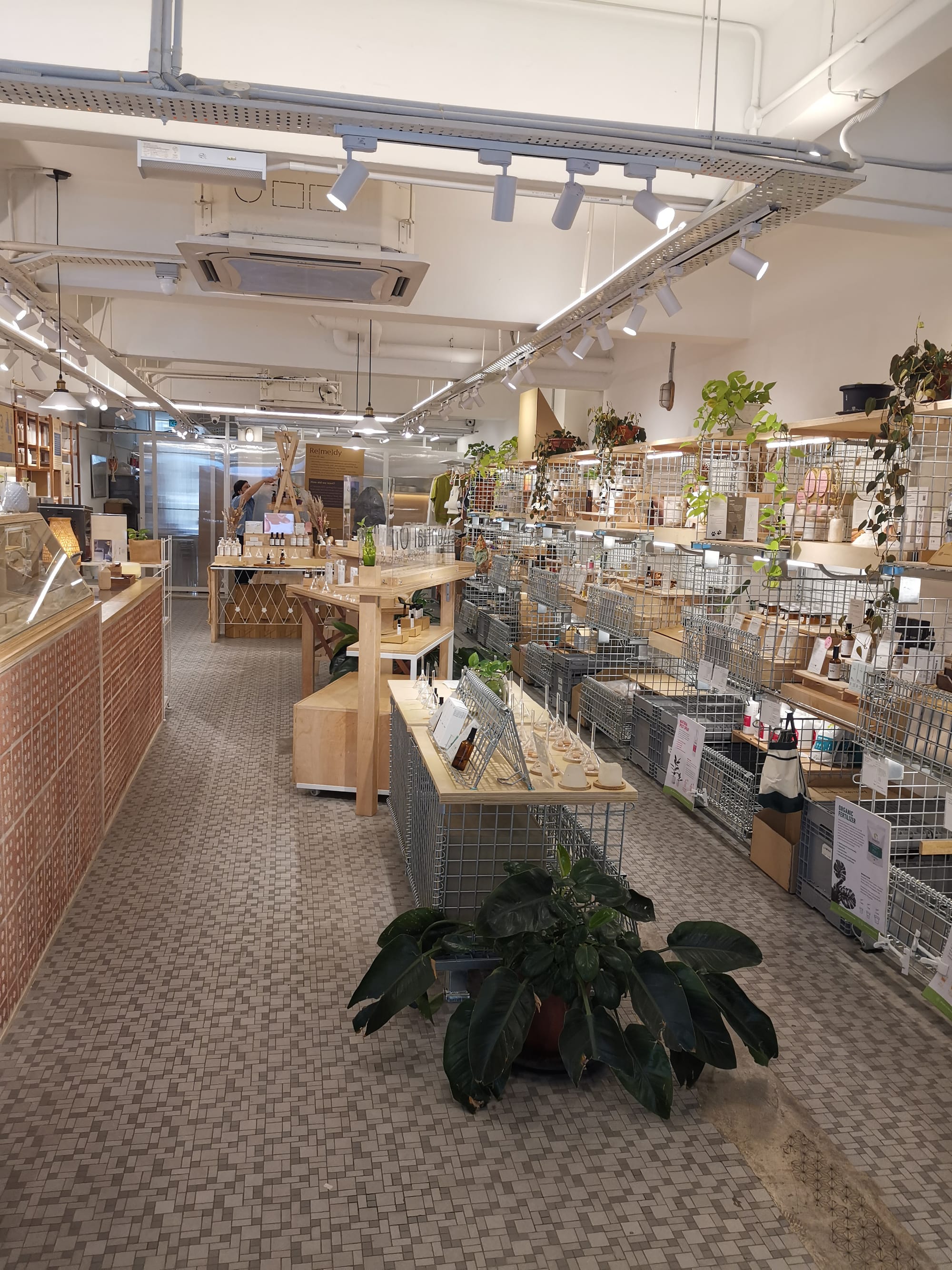
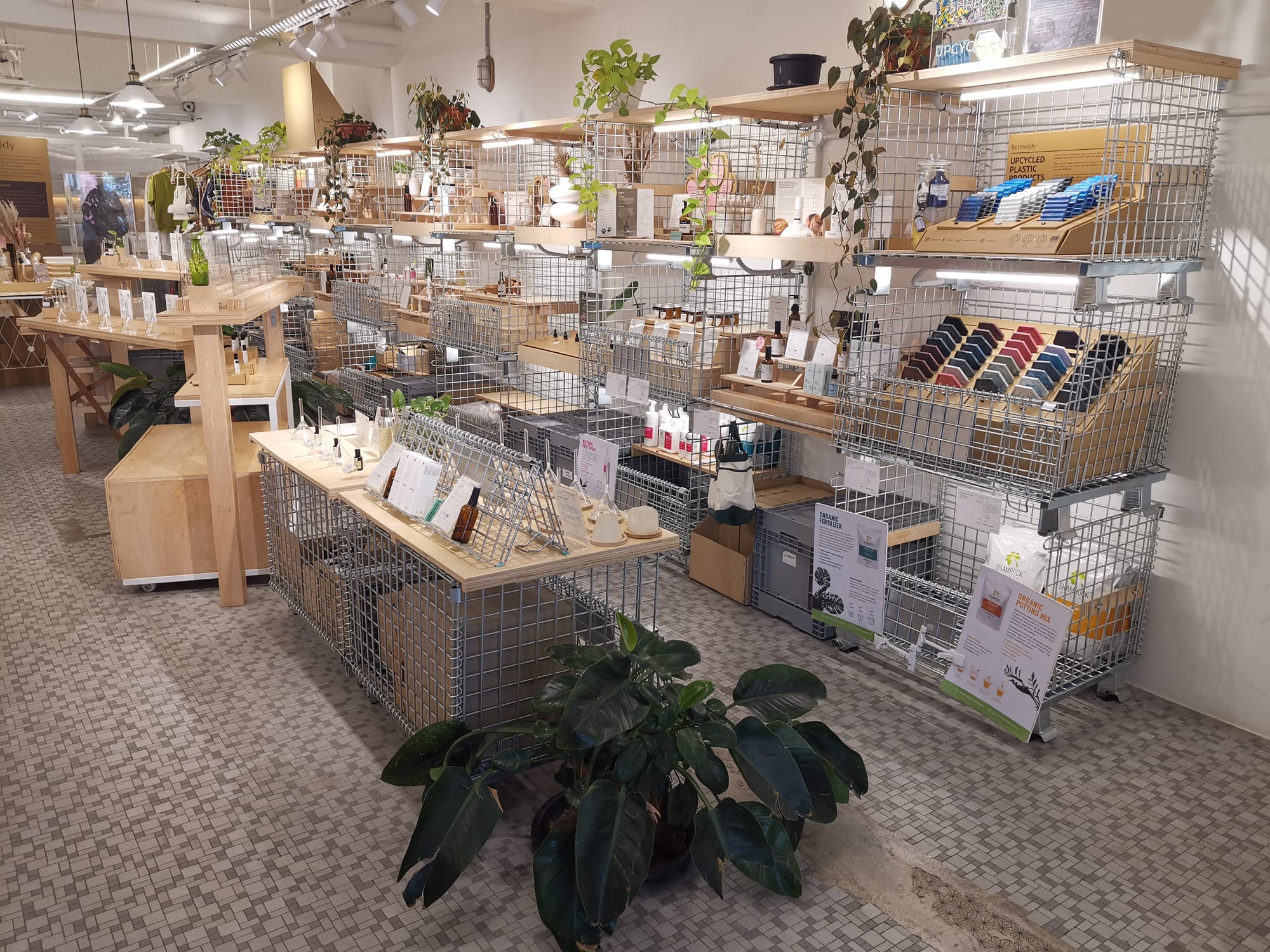
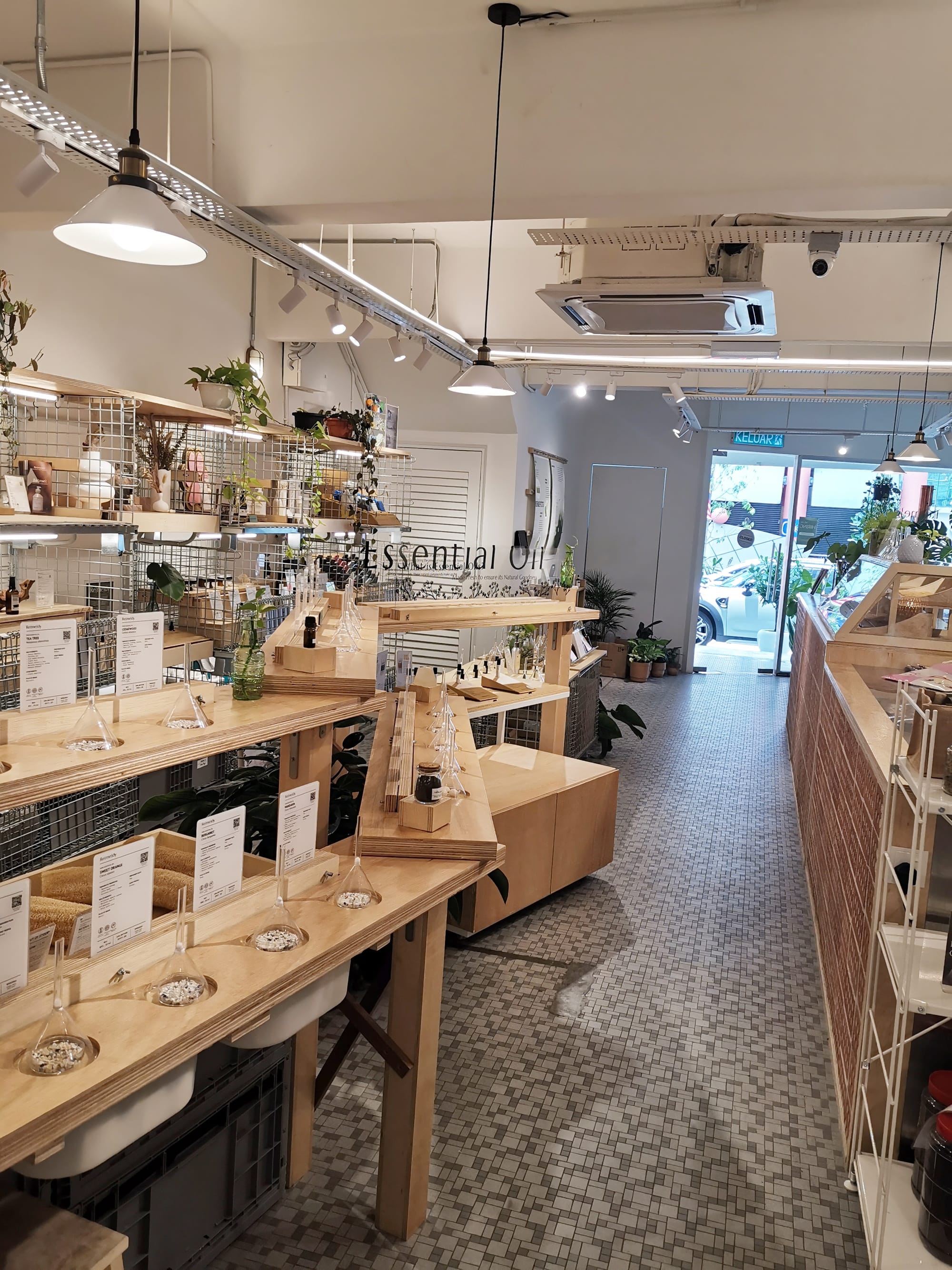
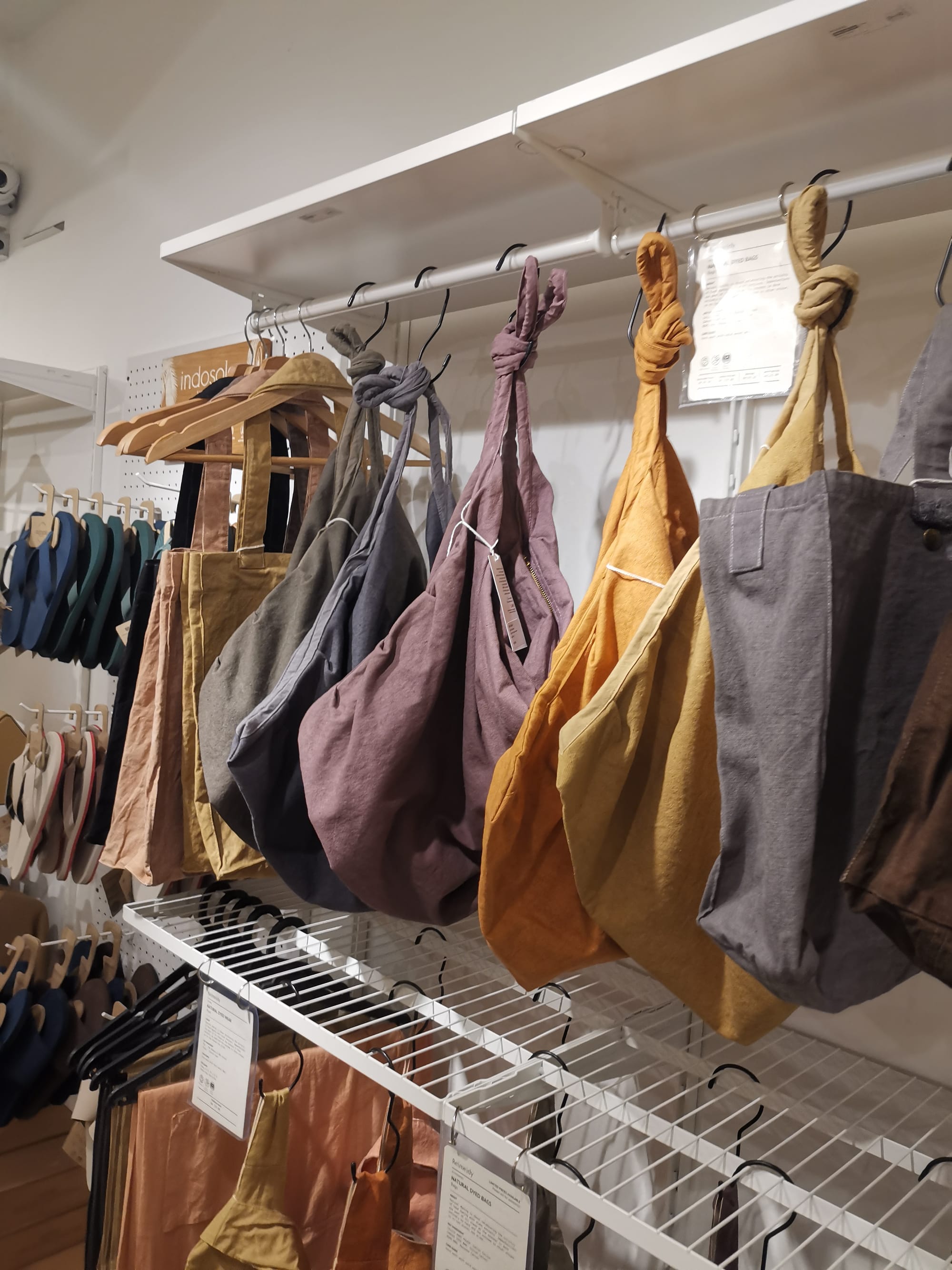
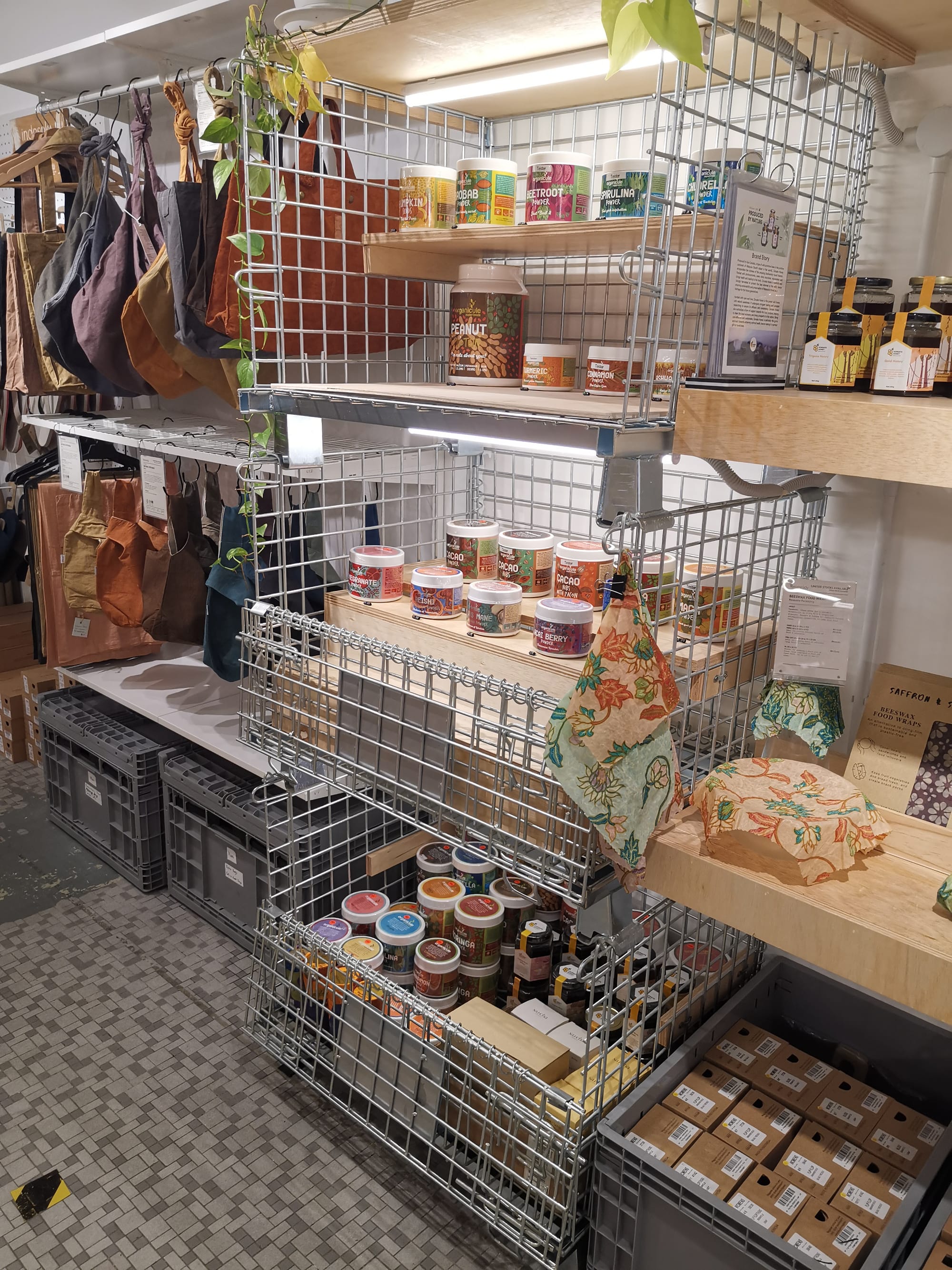
"Our focus in opening Re{me}dy KL was to make beauty more circular, for example by re-using packaging and bottles, developing ways to use waste as ingredients and using more natural (and fewer processed) ingredients in the products. We knew from the beginning, that there'd be some challenges but perhaps we underestimated how difficult it would be." - Jon Lee
Running a circular beauty store in Malaysia isn't easy and often it can feel like an uphill battle. Lee lists some of the factors that make Malaysia a challenging environment for a sustainable beauty store.
"First of all, we have a generally low income in the Malaysian population, with an average annual income of around MYR 48,000 (USD $11,142) which is around a quarter of the annual income in a rich country like Germany with EUR 45,457 (USD $48,682)," Lee explains. "Malaysia is also suffering from the current economic climate on top of an uncertain political situation which is further affecting domestic income levels. In addition, there is a general lack of public environmental and recycling awareness.”
And indeed, in almost all ASEAN countries, recycling services for glass and/or plastic are infrequent or confined to certain urban areas. Waste separation/management is often unstructured or non-existent, even in the richer countries within the region.

In Malaysia, for example, the country’s recycling rate is only around 31% at the moment, according to the Malaysian Investment Development Authority (MIDA), a lower rate than its neighbouring countries Singapore, Taiwan, Korea, and Thailand.
There is also less public information about sustainability issues. In Europe, for example, sustainability and ecological topics are frequently covered in mainstream media and news publications, and there are many online and offline resources for customers wishing to educate themselves about organic beauty, sustainable fashion, food ingredients, natural foods, organic certificates or ways to improve their individual carbon footprint.
In other countries, like Malaysia, things haven’t progressed that far yet.
“In Malaysia, awareness of ecological issues and sustainability, especially in relation to beauty topics like skin care and cosmetic ingredients, is very poor. There aren’t many publications that cover these topics. Sure, we have some niche influencers and social media accounts that promote sustainable living, posting information on topics such as composting, reducing waste or going packaging-free. However, most of these do not go into detail about beauty products and ingredients.” - Jon Lee
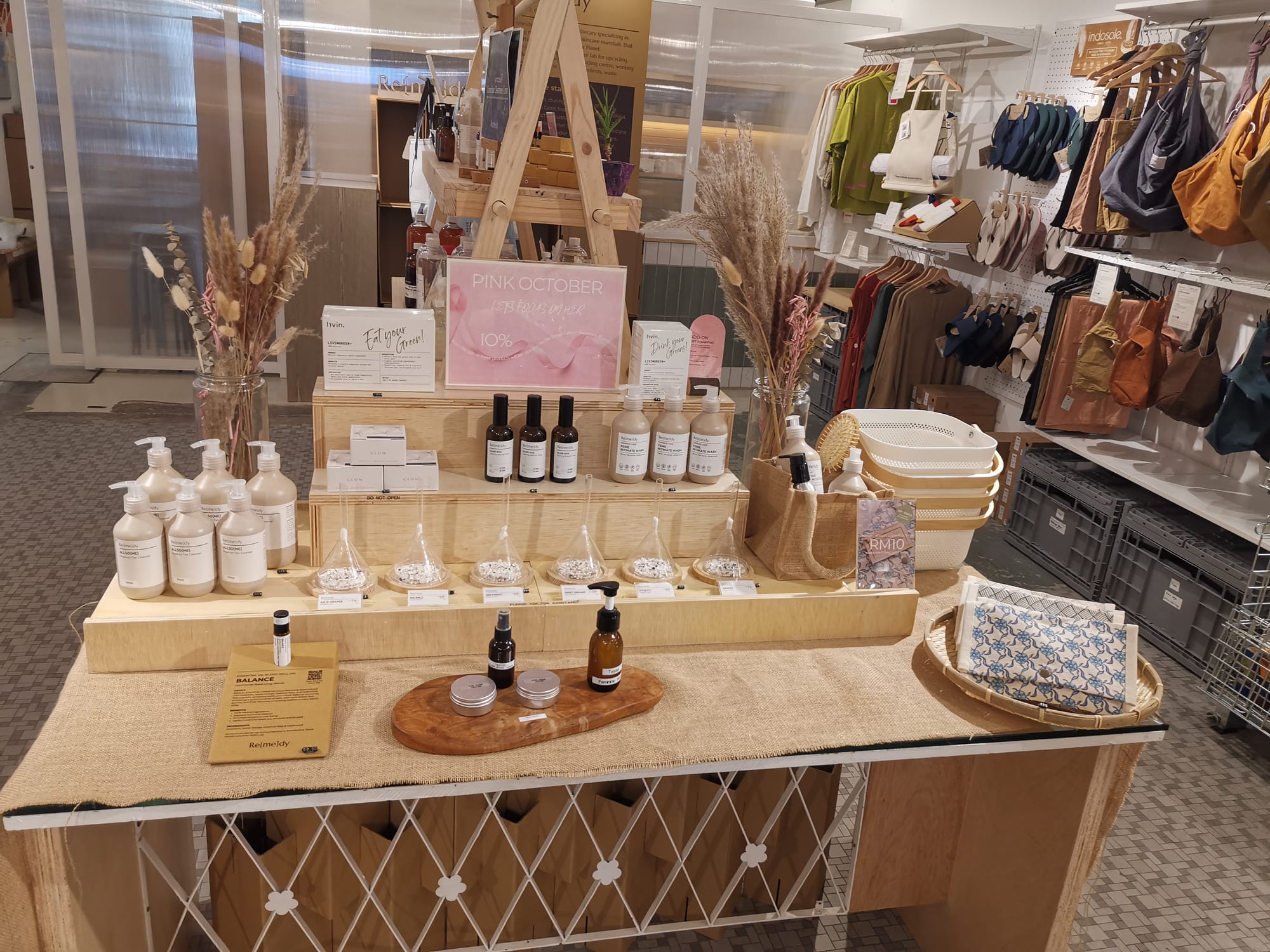
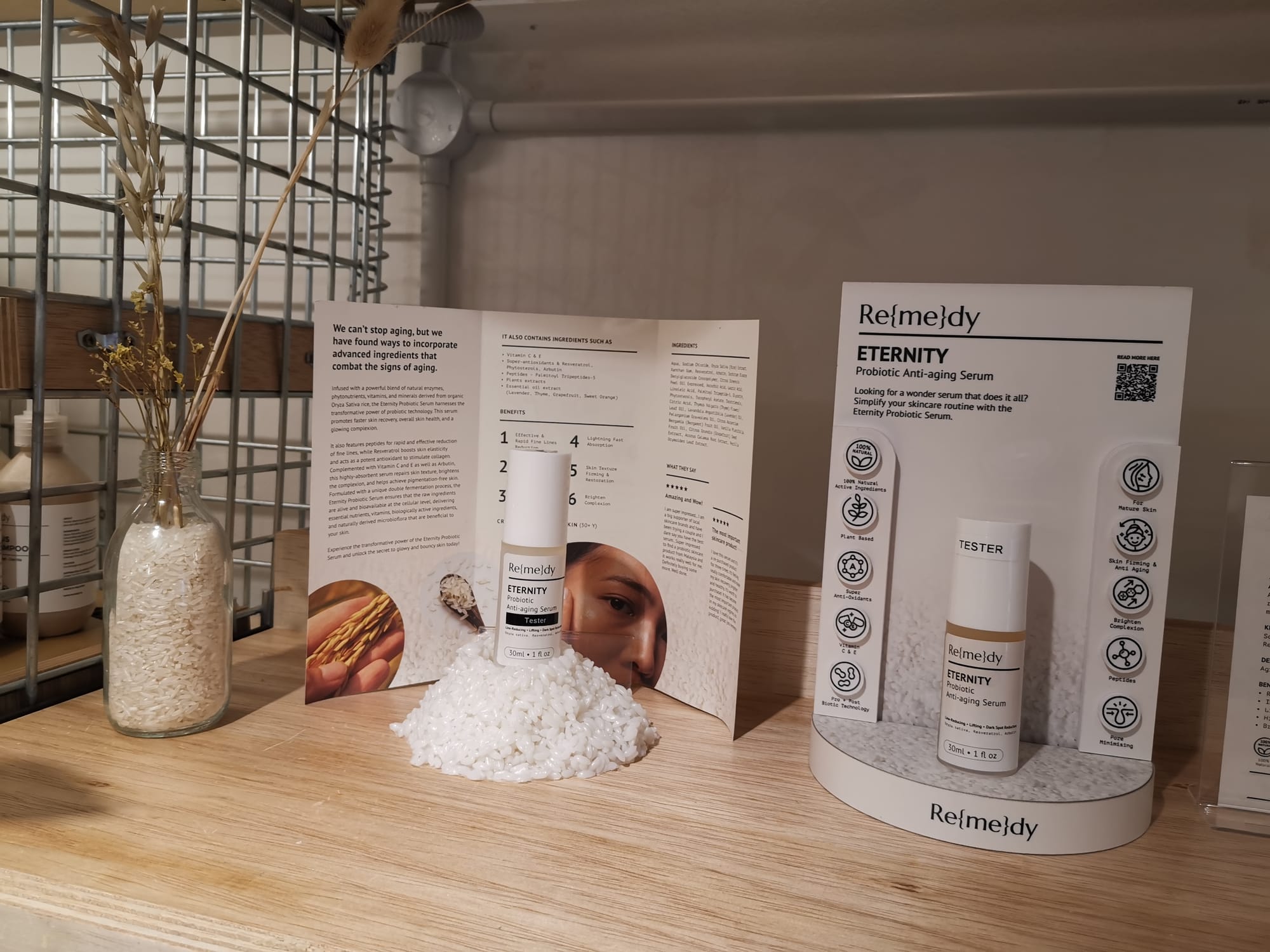
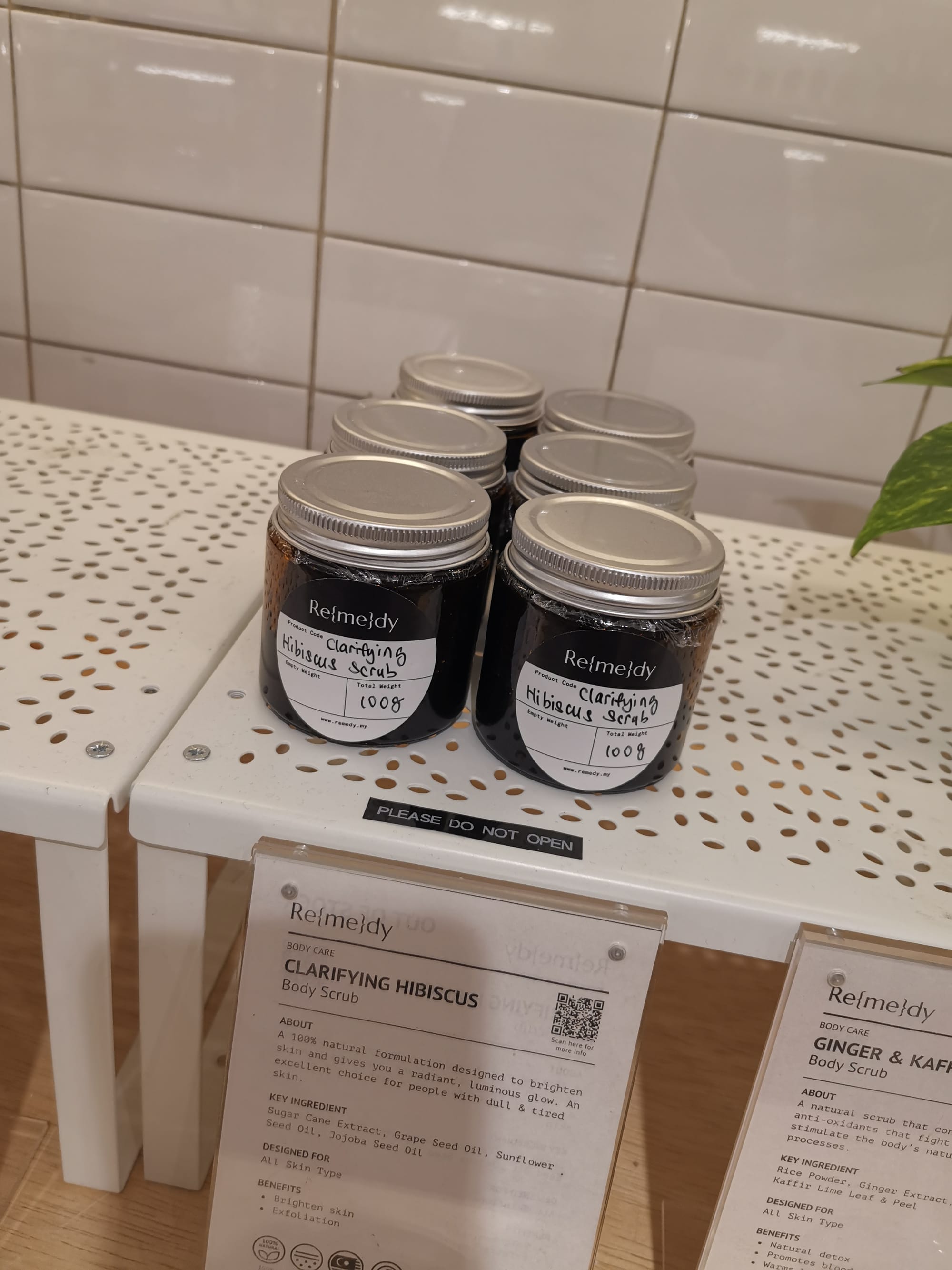
Re{me}dy KL own label beauty / Photo by Annemarie Kruse
And while the pandemic has boosted sustainable thinking and climate change activism in many European countries, Lee feels that in Malaysia, Covid-19 hasn’t had a similar effect. “Even after the pandemic, around 90% of Malaysian consumers aren’t overly concerned about climate change. In general, consumers want good products, they want effective value-for-money cosmetics and don’t really care about (sustainable) packaging in any sense. If beauty products are good, they will use them. Product sustainability, however, is more of a nice-to-have than a requirement.”
When Re{me}dy first opened, the store offered refill options for face and body care as well as household cleansers/products – one of the first stores in Malaysia to do so. However, as the store didn’t have a proper clean-room environment which is essential for refilling fragile cosmetic formulas like face care, Re{me}dy stopped offering face care refills in 2022. There is still a refilling station for more stable liquid beauty products like shower gels and shampoos.
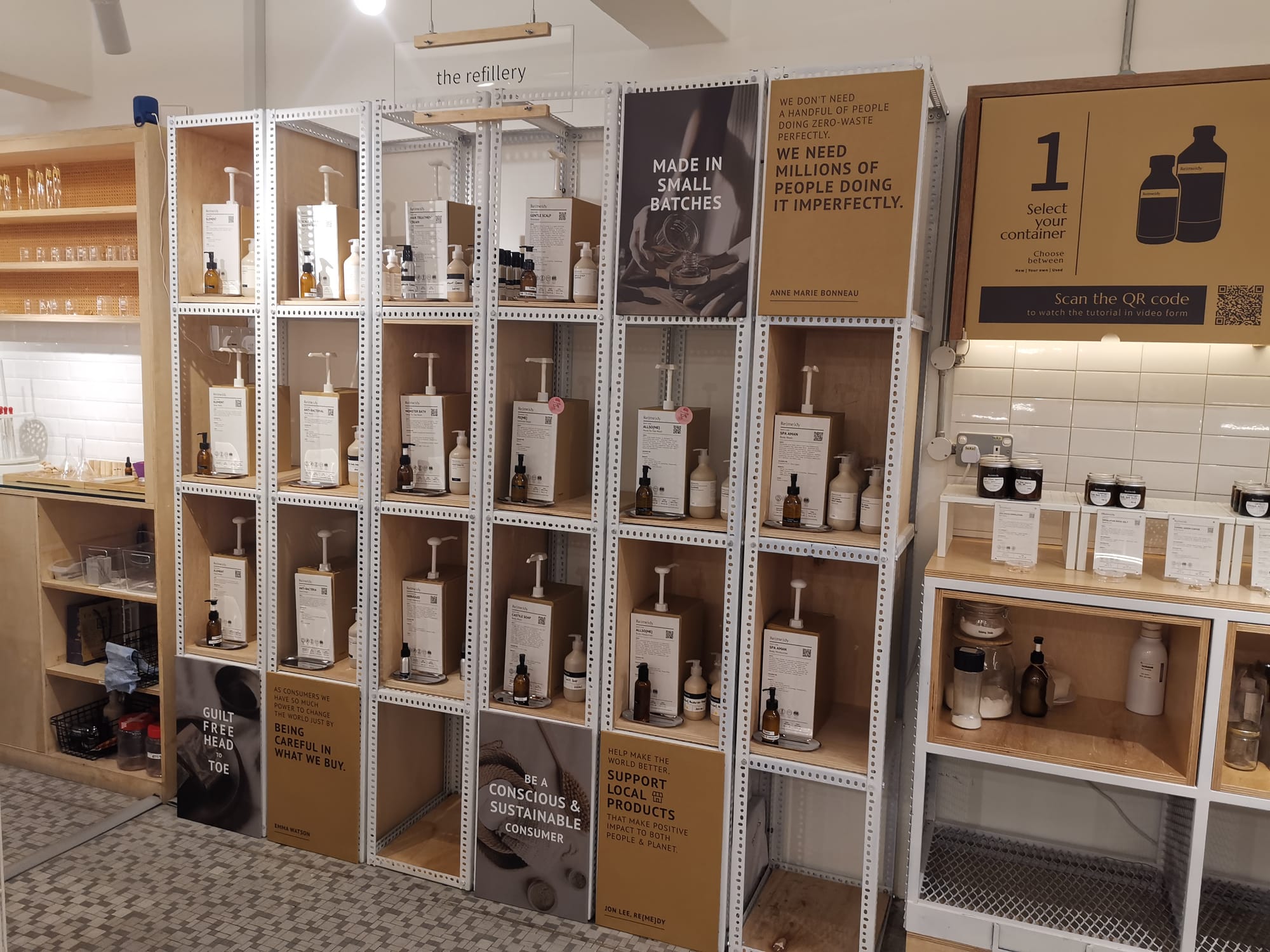
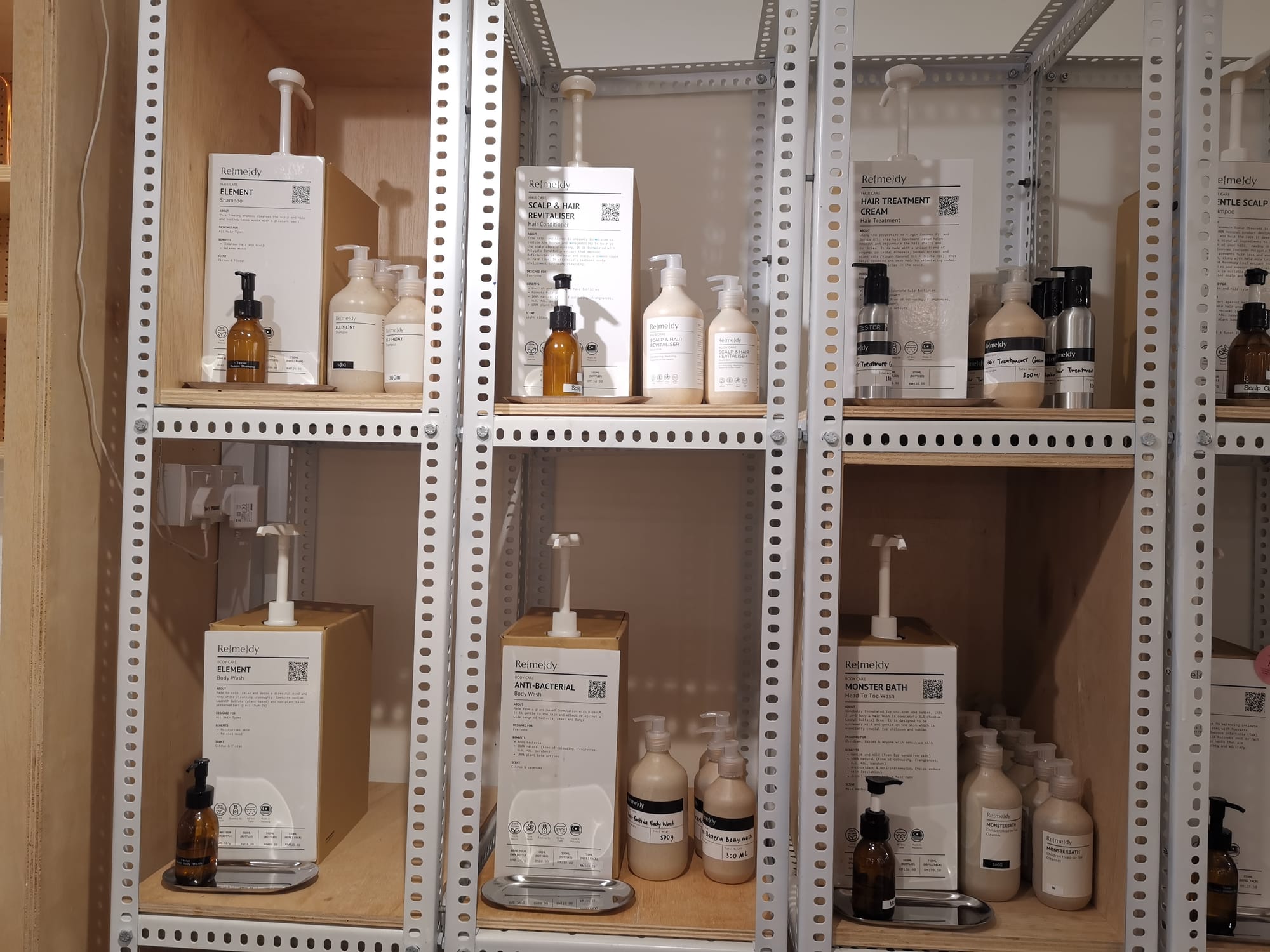
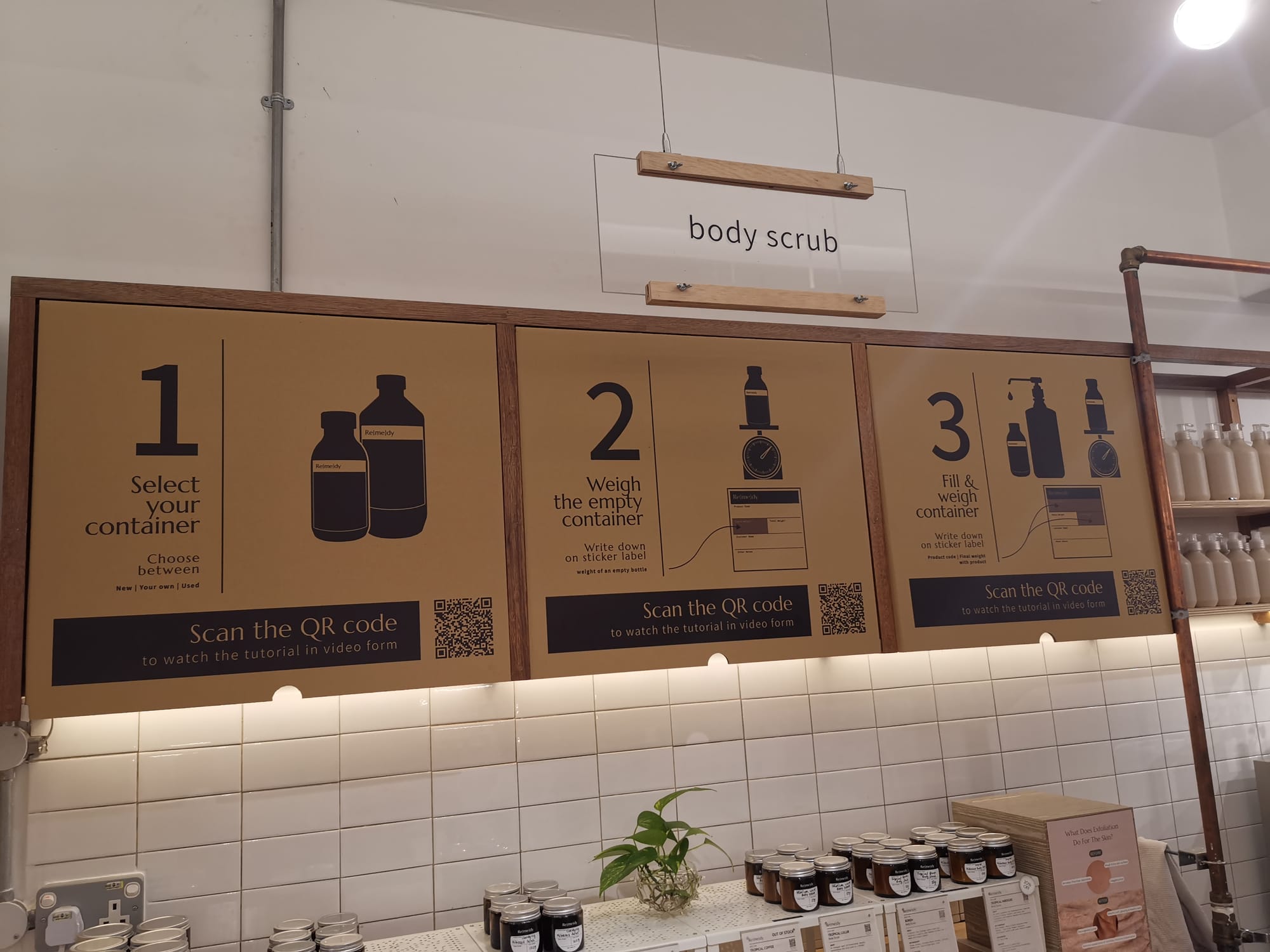
Lee says: “There is an increase of consumers going towards sustainable beauty in refillable formats, purely because some bulk beauty stores offering this option – like Re{me}dy – still exist. However, most of us in this sector are not doing well – this year alone I have seen three of my compatriots close down their bulk stores. I would say that because of passionate stores like ours, the number of consumers interested in beauty refills and their demographic is increasing. However, the reality is that it is uncertain how long stores like us can last without enough consumer support.”
“In Malaysia, sustainable/circular beauty is currently more of an initiative by responsible business owners rather than a consumer-driven demand. We are trying to change that by educating the customers about the necessity for change, why products need to be more ecological for the future of humankind." - Jon Lee
Lee adds: "Still, at this point in time – after two years of Re{me}dy being in business – the reality is that Malaysian consumers aren't swayed to a brand because of its sustainability ethos. But hopefully, one day the majority of consumers will demand environmentally responsible skincare products from businesses.”

